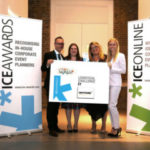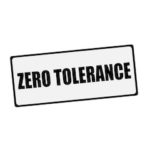The killing sparked more than a week of protests, which included the vandalizing and looting of local businesses and confrontations between demonstrators and law-enforcement officers — even after the Missouri National Guard was deployed to help quell the unrest. More than 160 demonstrators were arrested.
 What is the role of a DMO — whose mission is to market a destination as a safe and welcoming place for visitors — during such an extremely public crisis? Convene spoke to Kitty Ratcliffe, president of the St. Louis Convention & Visitors Commission, on Aug. 25 — 16 days after Brown had been killed, on the day of his funeral. “Today is a day of mourning, not only for a young man and his family,” Ratcliffe said, “but it’s mourning for a community that was never prepared to deal with this kind of crisis.”
What is the role of a DMO — whose mission is to market a destination as a safe and welcoming place for visitors — during such an extremely public crisis? Convene spoke to Kitty Ratcliffe, president of the St. Louis Convention & Visitors Commission, on Aug. 25 — 16 days after Brown had been killed, on the day of his funeral. “Today is a day of mourning, not only for a young man and his family,” Ratcliffe said, “but it’s mourning for a community that was never prepared to deal with this kind of crisis.”
I saw that the St. Louis Convention & Visitors Commission released a statement about the situation in Ferguson, which I thought struck the right balance between allaying concerns and expressing sensitivity to the situation.
Yes, immediately following [the killing and the media exposure], we sent a statement to every group that was booked to come to St. Louis and was scheduled to arrive within the next month, because we figured that they would be possibly getting questions from their attendees. And we needed to give them a statement that they could use if they needed it. So we just created that and sent that out in a blanket format to those groups that we had booked. We also sent it to our hotel partners, because there are many groups that don’t work with the Convention & Visitors Commission to book their meeting. And so we wanted to give our hotel partners the tool to be able to send it out to any of their groups that we weren’t aware of. So we tried to reach people that way.
And then, of course, anybody who just called and inquired, we also had that then to be able to send to them. We didn’t really get all that many calls, but wanted to be prepared. We got a few. But it really was much fewer than we expected we would get given the national and international exposure by the media. So we were prepared to be able to handle a much larger volume of calls than we got. So that was good.
Are you concerned about the public perception of St. Louis in terms of race and class issues or an overly military police presence? Do you think this tragedy will have a lingering effect on the city?
Well, I think we need to be prepared to address them. Those items that you noted are specific to one town in the county. It was badly handled by a small-town police force. And if they’d handled the incident properly on the first day, they wouldn’t have had the issues that they had on the second day. And as a community, we wouldn’t have had them for the last two weeks. But probably every decision they could have made, they made incorrectly in terms of how to handle it. And so I do expect that we’ll have questions that will linger from that for a time. And we have tried to do the best we can to equip our team to answer them.
As someone who has a depth of experience in the DMO community, what do you think is its role in this kind of a crisis?
It’s to immediately take a leadership position in the community to represent the hospitality community. And make sure that the issues of the hospitality community are dealt with in a caring and expeditious manner. Our first reaction to this was [concern] for the employees who live in Ferguson. We have three at the Convention & Visitors Commission.
And so if we have three, we know that many of our hospitality businesses have employees [who live in Ferguson]. [Our concerns were:] How safe were their families? Could they get to work? Did they have what they needed to sustain themselves in an area where grocery stores weren’t open and public transportation was temporarily rerouted?
And so that’s our first and foremost concern, because many in the hospitality industry are shift workers. They don’t have deep pockets, and they’re not able to sustain a long crisis. And so we shopped at grocery stores, and we went out and brought people baby food, diapers, and whatever they needed to make it through the first week and then again the second week when it was evident that it was going to be protracted.
But beyond that, we have to provide leadership in terms of messaging and communications to a lot of small businesses in the region in hospitality who don’t have their own public-relations departments and firms, and really are just focused on the day-to-day operations of their own businesses. And we have to be able to provide the tools to them to be able to address the same kind of inquiries that we’ll be receiving at the Convention & Visitors Commission.
And then lastly — all at the same time in rapid-fire motion — is, be able to address the concerns that may be surfacing from potential visitors, whether those are leisure visitors or whether those are meeting and convention attendees. And to be able to truthfully tell them what the status is in the community, because you can’t judge that based on media reports.
So we got all those things pretty much [done] all at once on the same day, just by dividing responsibilities amongst certain members of our team.
What is the mood there today on the day of Michael Brown’s funeral?
Today is a day of mourning, not only for a young man and his family, but it’s mourning for a community that was never prepared to deal with this kind of crisis. And by community, I mean a very small town, Ferguson. Despite being within the metropolitan area of a major city, it’s really a very small town. And it has its own mayor, its own police force, its own fire department, its own schools, and its own small businesses. And they were not prepared to deal with the fallout of a very difficult situation. And so it is, in fact, a day of mourning for them as well.
Switching gears a little bit, what events are coming to town that can help demonstrate that St. Louis and the area itself is a safe place to bring meetings?
We actually have a couple of high-profile events going on this week for different audiences. One of them is the start of an international chess competition, the Sinquefield Cup. All of the top chess players from around the world are here, covered by social media as well as the media that followed the chess world here. And on the same night that it starts, Wednesday night, we have a One Direction concert in the Dome Stadium that we manage as a part of our convention center. And we have 55,000 little girls and their mothers or their chaperones who will be here and who are coming from all over the country.
And then we have quite a few events in the weeks that follow. So we do have a lot of media attention, and a lot of out-of-town visitation occurring right now and over the course of the next couple of weeks.
And so we really did expect that we would have a large volume of calls of concern. And the calls have been fairly minimal. But they all present an opportunity for us to get the message out. We had five different groups here on site visits last week, and they could all see for themselves that the areas that they’re looking at are unaffected by this. And the more people that we can get here who can see it for themselves, the better off we’re going to be.




